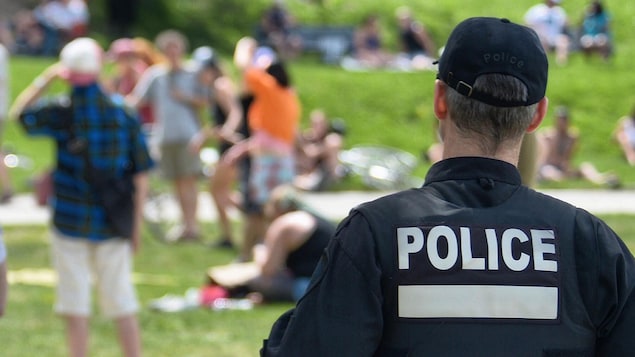© Stop still
– If GERB runs in the July elections as a defender of the “Borisov model” (or of the model himself), their loss is tied in a towel.
The analysis was republished by “Deutsche Welle.”
The most significant fact in the formation of the new caretaker government was a request by President Rumen Radev, which virtually no one disputed: that it represents the left, the right and the center of Bulgarian politics. But the composition of the government makes this request strange for many: there are obviously no GERB people in it, nor can it be said that Cornelia Ninova’s circle is particularly represented. In the end, Yanaki Stoilov and Boyko Rashkov cannot be unequivocally seen as people of the BSP leader. That is, the right-wing “big” party is not present, and the left “big” party is present without the proxy of its leader in the government. However, few would say that the left and right are not represented in it.
Why is that? The answer is that Radev’s second caretaker government is not so much a reflection of the current party system as a projection of trends in it. And these tendencies are basically two: BSP is losing the leadership in the center-left space, and GERB is about to lose its leadership in the center-right, and the question seems to be when exactly this will happen and in how painful way.
Slavi, “Democratic Bulgaria” and the new party system
On the left, things seem clearer. There, Slavi Trifonov – if his formation is a party at all, and not just an experimental political show – has already got a serious chance to become a presenter. According to exit polls, on April 4, about 100,000 people from the GERB electorate and 50,000 from the BSP voted for “There is such a people” (ITN). But more importantly, one third of Slavi’s supporters were non-voters, and in general his vote came from young people from cities outside the capital. This is an electorate that in European countries would lean to the left, although in Bulgaria the BSP is not able to attract it. Trifonov powerfully entered this segment and the “centenarian” logically remained behind him in third place.
In the right, similar processes are also happening, but more slowly: GERB has already handed over the leadership in Sofia to Democratic Bulgaria (DB) and will most likely continue its retreat in the July elections. According to the latest Market Links survey, DB achieved support of about 12%, which breaks the “ceiling” reached by the “urban right” in its previous formats.
The problem for both GERB and BSP is that if they continue their current policy, they will not be able to reverse these trends: the track is deep and very clear. Both parties are suffering because they have become hostages of their leaders, albeit in different ways.
The case with Cornelia Ninova is now understood by everyone except herself. Pushing the BSP into the niche of national populism (“conservative socialism” in its version), it opened up a huge space in the center-left, where Slavi Trifonov settled – although he himself defines himself as a right-wing man. Whatever he thinks of the flat tax, Slavi can speak (and sing) to young people who care about their nation without being Putinophiles; who are socially engaged but do not profess class theory and are not nostalgic for socialism. He declares clear pro-European positions and thus does not frighten either business or the average voter who would not want to see their country marginalized in (or, God forbid, outside) the EU. In short: Trifonov’s policy (with all the conventions of this expression) and his electoral profile resemble the eclectic “third time of the European left”, which led it to success with Tony Blair and his followers.
The clearest sign of Trifonov’s position in the center-left is his strategic alliance with Rumen Radev. The new elections, the caretaker government – both are the offspring of the interaction between the president and the ITN. This interaction may simply be the result of a momentary coincidence of interests. But it may be a more permanent pairing.
This tandem between Radev and Trifonov is also a kind of hope (justified or not) that the left can give birth to something more in the economy than the politics of Prof. Rumen Gechev. The inclusion of people like Atanas Pekanov in the government is a hint that the long-awaited generational change in economic thinking on the left is imperative and may be about to happen.
Rumen Radev needs to rethink the left, even in view of the upcoming presidential election. He hardly wants to enter them as a candidate for an increasingly strange (and shrinking) “conservative-socialist” or “social-conservative” formation such as the BSP, which relies mainly on the votes of pensioners and repels young and progressive thinkers with undisguised xenophobia and homophobia. The emergence of ITN in this situation becomes a chance for partial and incidental normalization in the center-left.
It is true that Slavi Trifonov himself does not want to unambiguously define his formation as left or right, and considers himself, as mentioned, to be right-wing on many issues. But it is also true that he has no problem defending causes that are close to the European type of left: socially engaged but also attentive to the business environment and economic growth. In short: Trifonov may not be the perfect center-left option, but on the Bulgarian political market he turns out to be the closest to it.

© Julia Lazarova
–
The center-right is also undergoing transformations, which are caused not only by the emergence of ITN, but also due to the increasingly serious presence of DB. GERB retreated, becoming more and more a hostage and even a bodyguard of its leader. The dedicated defense of the party leader from the trio Toma Bikov, Dani Kanazireva and Manoil Manev in the “revision” commission can be used as a metaphor for GERB at the moment. However, the view is unflattering and repulsive to the periphery and hesitant voters. That is why the current political line of this party is losing.
If GERB runs in the July elections as a defender of the “Borisov model” (or of the model himself), their loss is tied in a towel. They will certainly also lose if they nominate a candidate for president from their circles who has no critical distance from Borissov: such a candidate will lose hard against Rumen Radev, as happened with Ms. Tsetska Tsacheva. And for the same reasons: people will vote against Borissov.
Do GERB have a useful move?
It is true that GERB is trying to get out of the situation by bringing to leadership positions politicians with a profile like from “Democratic Bulgaria”. Both Daniel Mitov and Tomislav Donchev come from the “urban right” and are mentally close to it. These are the qualities that seem to explain their leadership positions in GERB at the moment. But there are two problems with this strategy.
The first is that if it is so important for someone from GERB to have a profile and mental resemblance to the “urban right”, isn’t it better to vote directly for the representatives of the DB, and not for someone who looks like them? Second – and more importantly: the changes in the leadership of GERB were undertaken in order not to make the main change – of the leader himself. In this sense, we do not have a real transfer of power in the party, but rather a rearrangement of some pawns and officers to keep the king better disguised.
The truth is that GERB does not have any moves in this situation. If they start abruptly distancing themselves from their leader at the moment, this could lead to an electoral collapse. But if they don’t, inertia works against them and puts them in the comic and losing position of a defender of the indefensible.
One move they can still make is to declare support for a right-wing presidential candidate who not only has a DB-like profile, but also a real, serious critical distance from Borissov. For this purpose, this must be a person who has the trust of DB. In fact, this is the only way for GERB to demonstrate that it is not just a retinue of its leader without parting with him.
The described trends on the left and on the right may not be quite visible due to the pre-election smoke and the high degree of emotions. But politics does not tolerate a vacuum – new players enter and will enter the empty spaces, especially if the “big” parties are stuck in their defense of compromised individuals.
–


